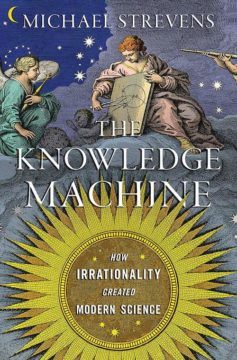Henry M. Cowles at the LARB:
 “IMAGINE, IF YOU CAN, a small room, hexagonal in shape, like the cell of a bee.” So begins a story by E. M. Forster from over a century ago, about a future that feels uncannily like our present. Called “The Machine Stops,” the story conjures a world of individual humans isolated in such rooms who pass the time by streaming lectures and videoconferencing as the titular Machine tends to their every need. It is a world in which everything — music, food, even your bed — is summoned by the click of a button. In place of work, the Machine offers material and intellectual sustenance. For the story’s main character, Vashti, it turns life into a reassuringly predictable cycle: “[S]he made the room dark and slept; she awoke and made the room light; she ate and exchanged ideas with her friends, and listened to music and attended lectures; she made the room dark and slept. Above her, beneath her, and around her, the Machine hummed eternally.” To Vashti, the Machine offers serenity and certainty in equal measure. In this imagined world of isolated togetherness, heaven is a place.
“IMAGINE, IF YOU CAN, a small room, hexagonal in shape, like the cell of a bee.” So begins a story by E. M. Forster from over a century ago, about a future that feels uncannily like our present. Called “The Machine Stops,” the story conjures a world of individual humans isolated in such rooms who pass the time by streaming lectures and videoconferencing as the titular Machine tends to their every need. It is a world in which everything — music, food, even your bed — is summoned by the click of a button. In place of work, the Machine offers material and intellectual sustenance. For the story’s main character, Vashti, it turns life into a reassuringly predictable cycle: “[S]he made the room dark and slept; she awoke and made the room light; she ate and exchanged ideas with her friends, and listened to music and attended lectures; she made the room dark and slept. Above her, beneath her, and around her, the Machine hummed eternally.” To Vashti, the Machine offers serenity and certainty in equal measure. In this imagined world of isolated togetherness, heaven is a place.
more here.
